Sofía Dinello Morais
Sofía Dinello Morais (she/her) has a background in Fashion Design and Contemporary Art. With a special interest in slow processes, resource carefulness, and creative writing, her work revolves around reflective practices that explore the interplay between the material, the personal, and the cultural.
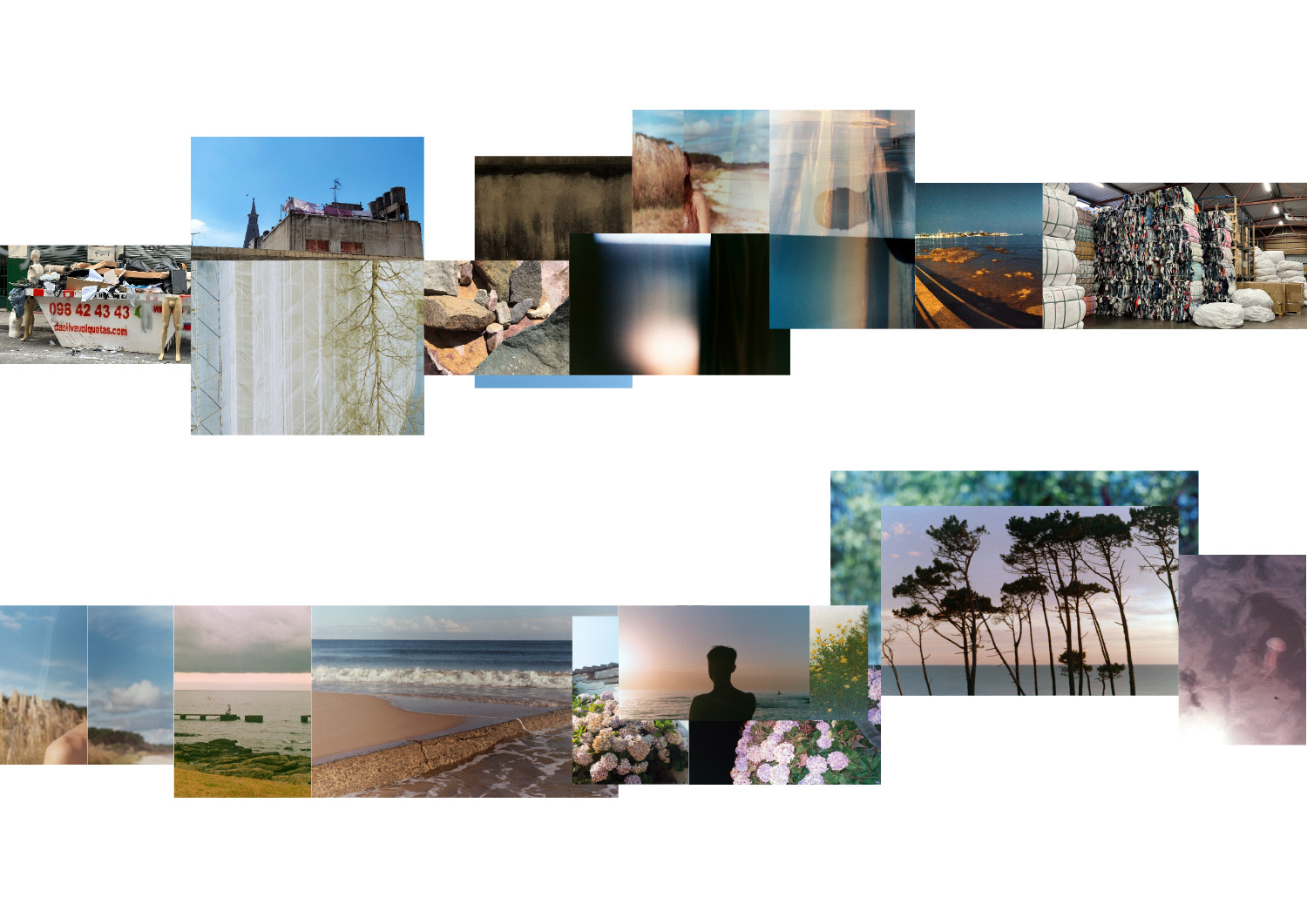
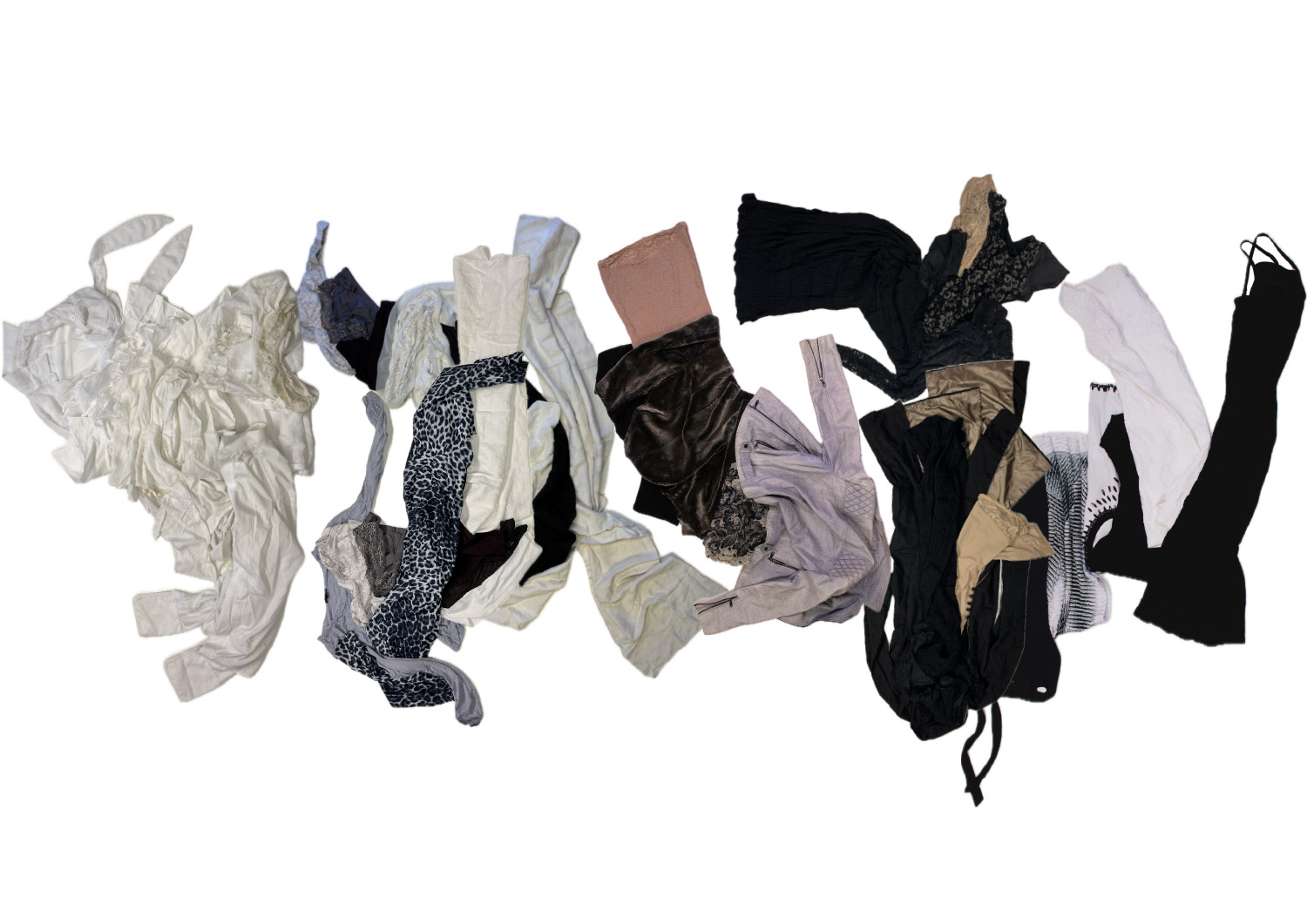
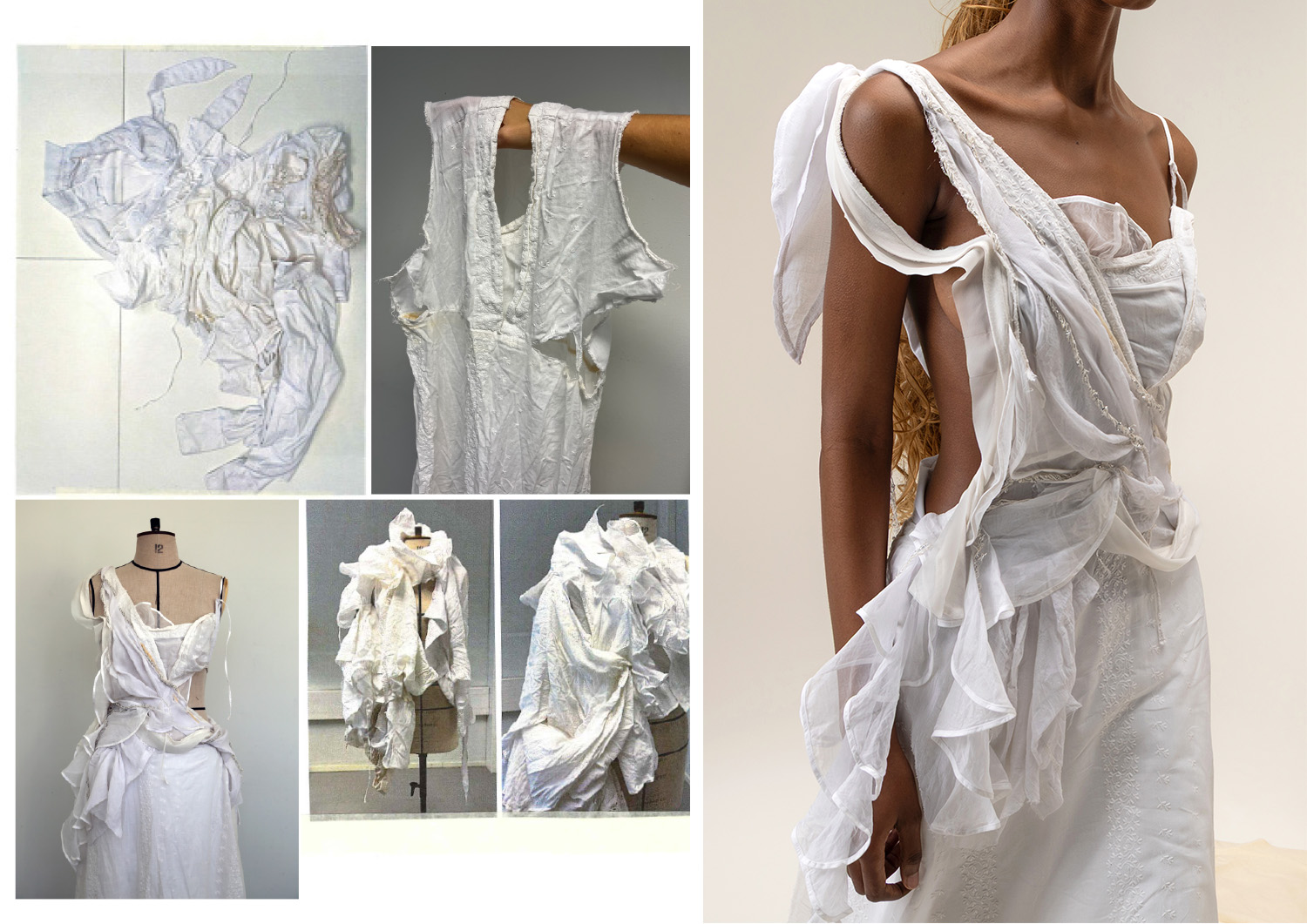
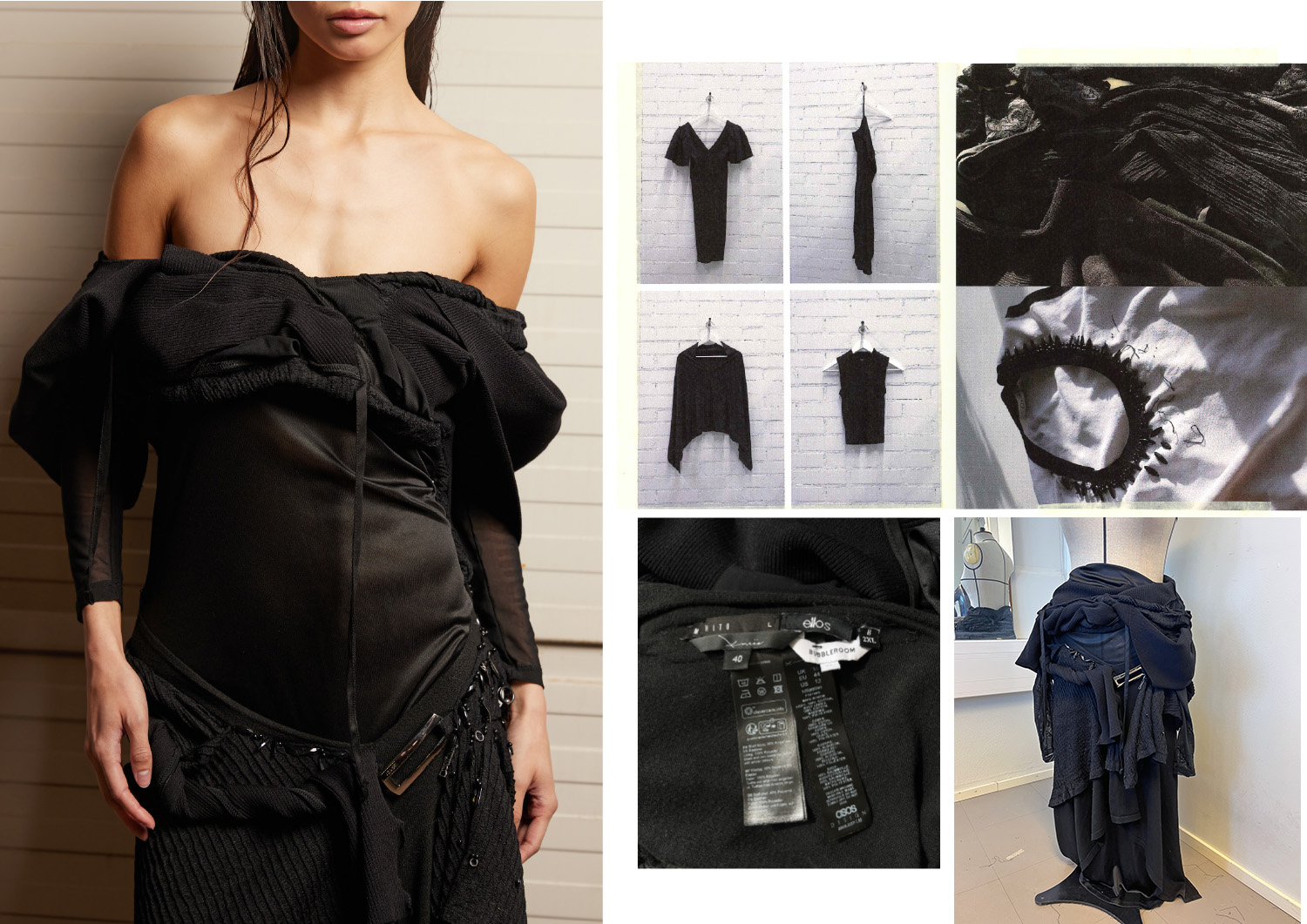
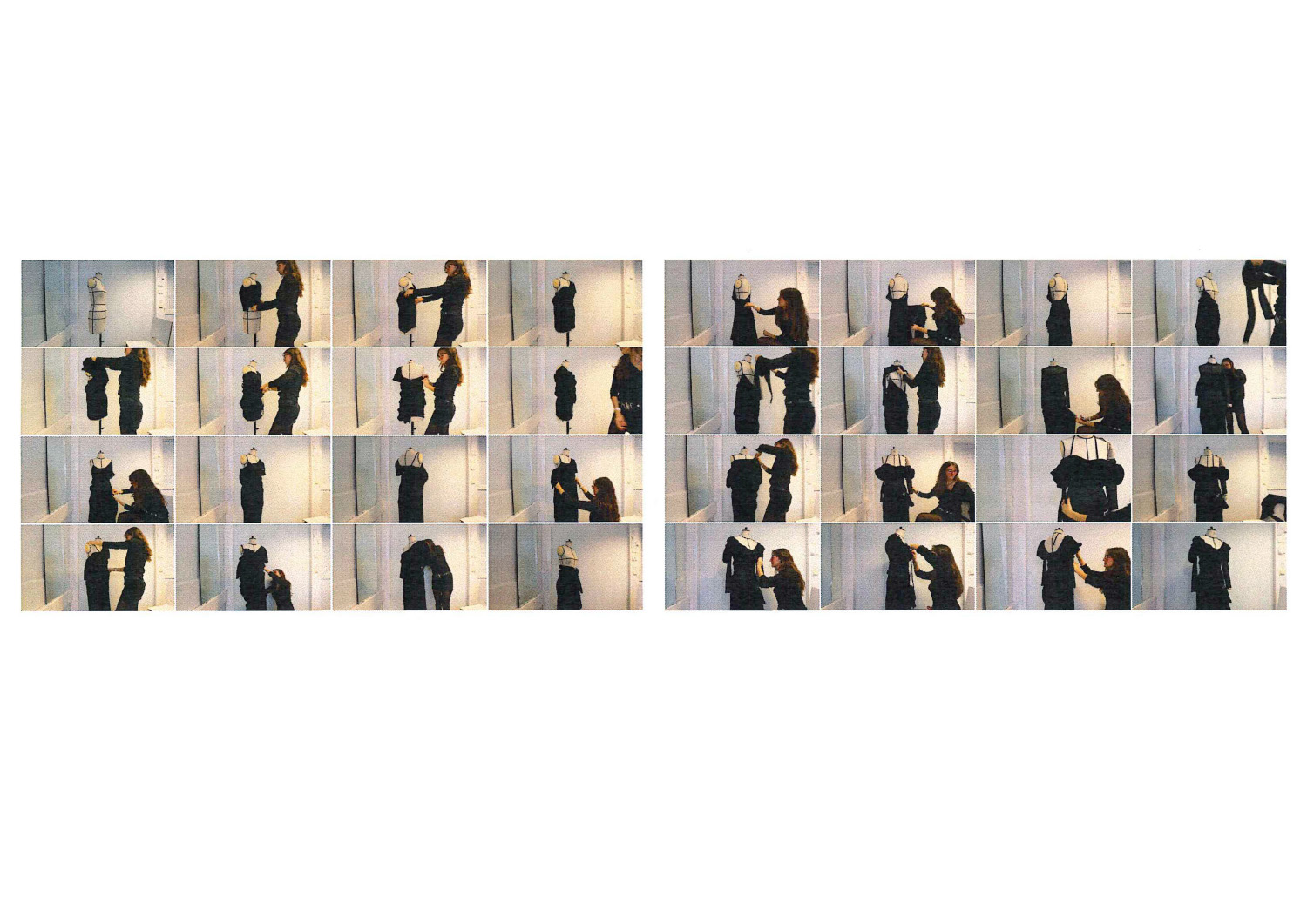
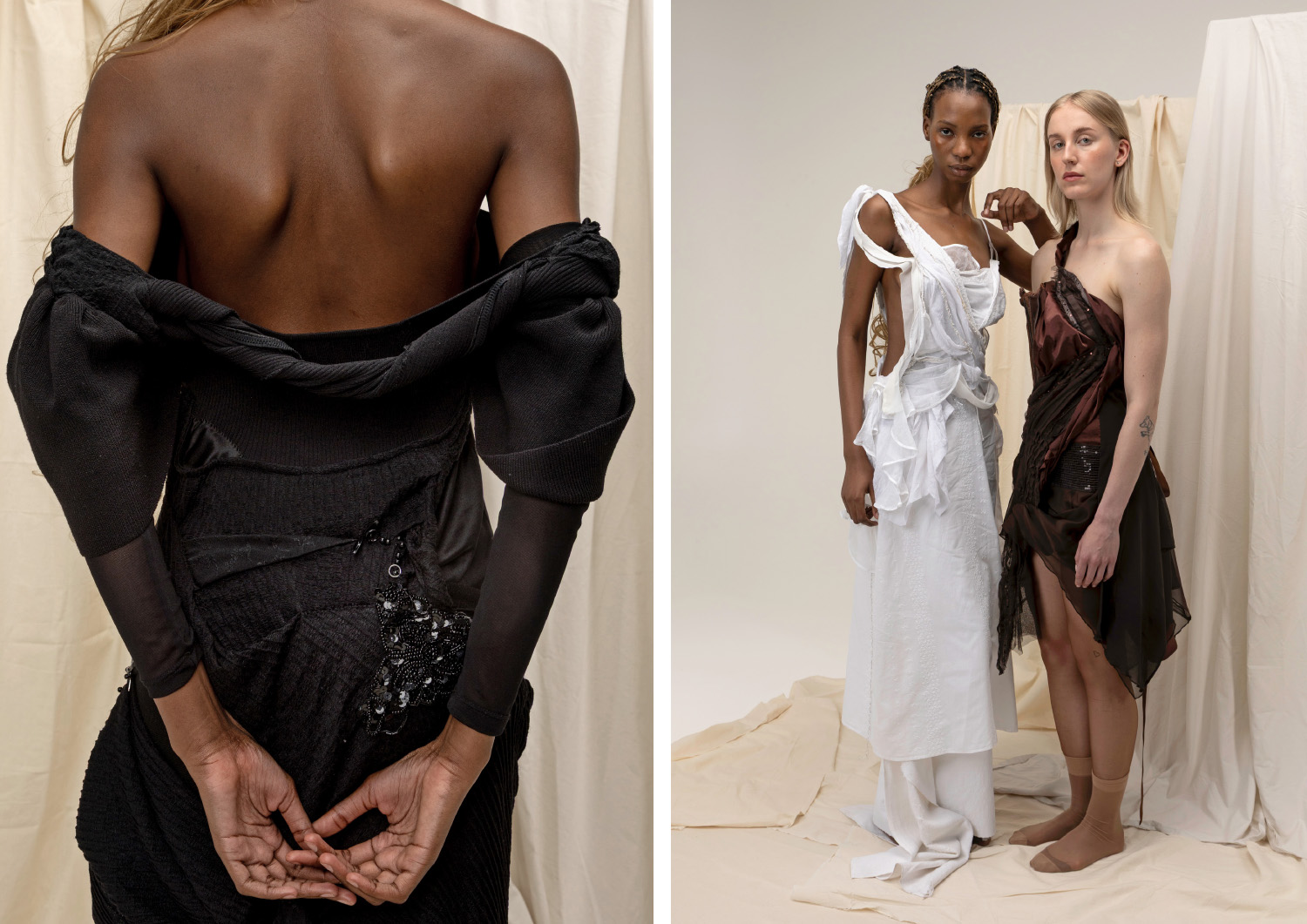
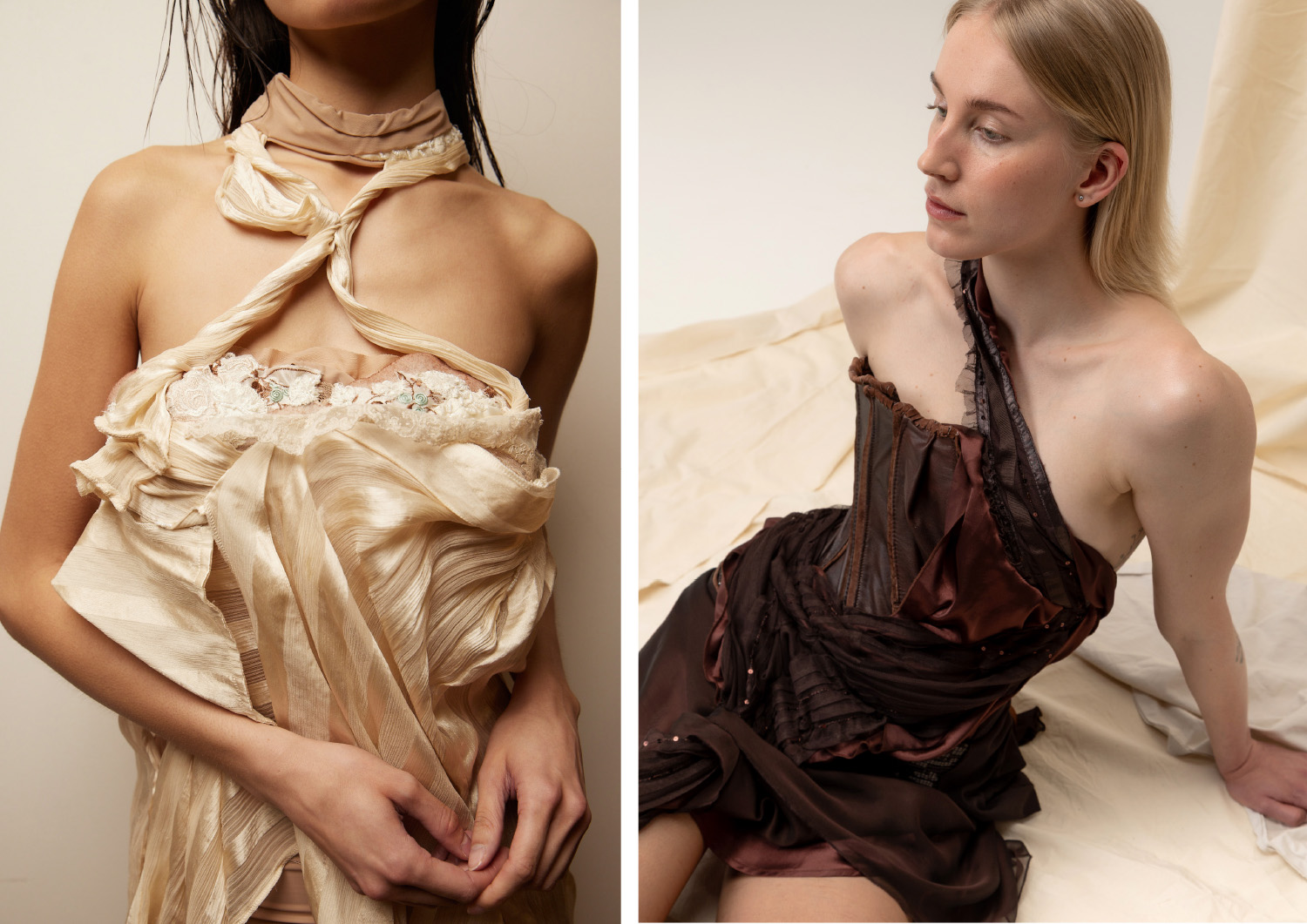
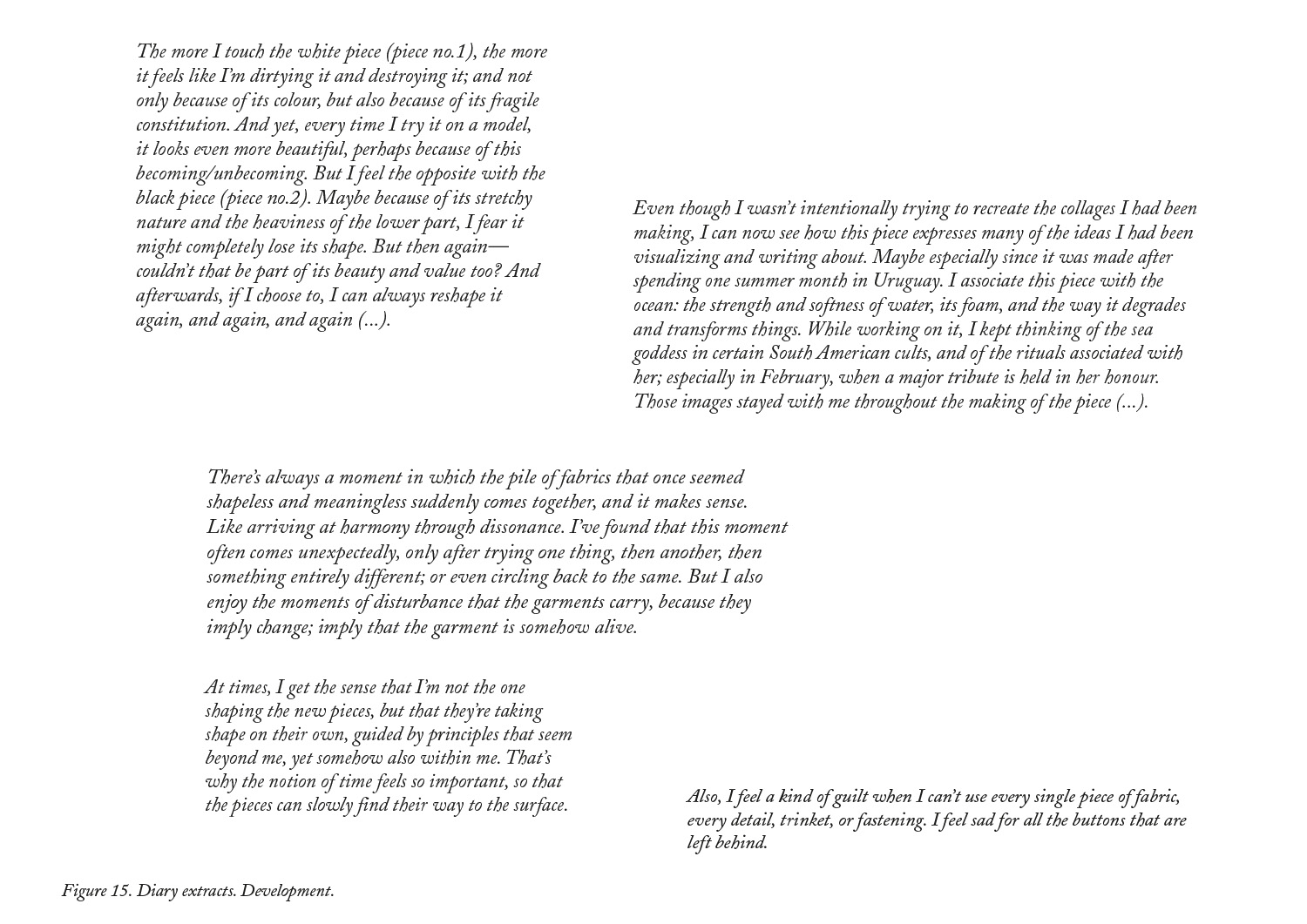
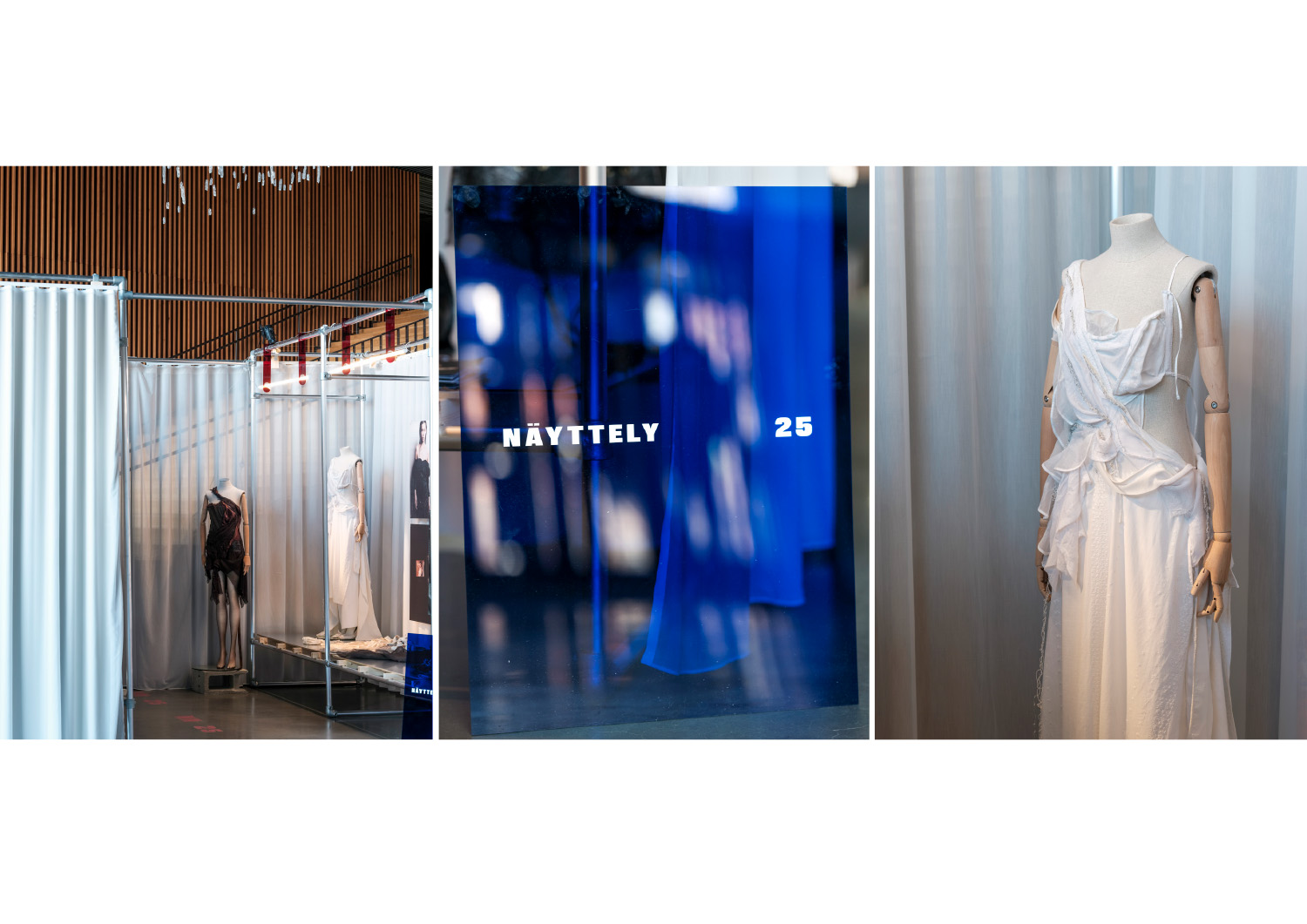
For All That is Roots, Fabrics, and Fluids
Master of Arts Thesis project, 2025Aalto University School of Art, Design and Architecture
Research supported by T-REX, Textile Recycling Excellence
Exhibited at Aalto University Fashion/Textile Näyttely25 exhibition
Much of my background as a clothing designer is related to practices of resistance, both conceptually and materially. My approach is deeply shaped by the material and symbolic tensions between the Global North and South. Clothing design, with its imperatives of standardization and incessant push for both excessive material output and complete dematerialization, has had a lasting (cultural, economic, environmental) impact in the Global South. For me, this means that any garment, resource, or landscape is not just background, but an active and affecting fragment.
My graduation project focused on developing an exploratory practice connected to the poetics of the already-existing, embracing what has been deemed not valuable. This manifested into a re-design exploration of discarded second-hand clothing through an experimental collaging approach, related to associative material thinking. The work took shape through direct engagement with the materials; by adding and removing, stretching, twisting, folding, hand-sewing—while paying special attention to the feelings, impulses, and the instinctive gestures that arose along the way. Journaling and photography served as tools to document and reflect on this evolving dialogue.
The project became not only an exploration of how garments can be transformed through embodied processes, but also a personal contemplation of own concerns and intimacies: landscape erosion and displacement; images of water; a desire for softness and affection; an admiration for the traces of handwork; a revaluation of what emerges as opposed to what is new. It acted as a meditation on what endures, what’s precious, and what’s given value and time, reflecting critically and poetically on how engaging with what is at hands can offer modes of resistance, introspection, and reparation.
Credits: Photography: Sofia Kulianu, Kristian Presnal. Model: Viivi Nguyen. Make-up & hair: Amy Gelera. Aalto University Näyttely25. / Photography: Aino Ahola. Models: Zainab Arowolo, Ella Lund. Make-up & hair: Kaisa Laitala. Assistant: Thekla Weißkopf. / Exhibition photography: Francisco Gonzalez Camacho. Creative Direction Näyttely25: Maarit Salolainen, Julia Valle. / Supported by T-REX, Textile Recycling Excellence. Second-hand clothing donated by UFF.
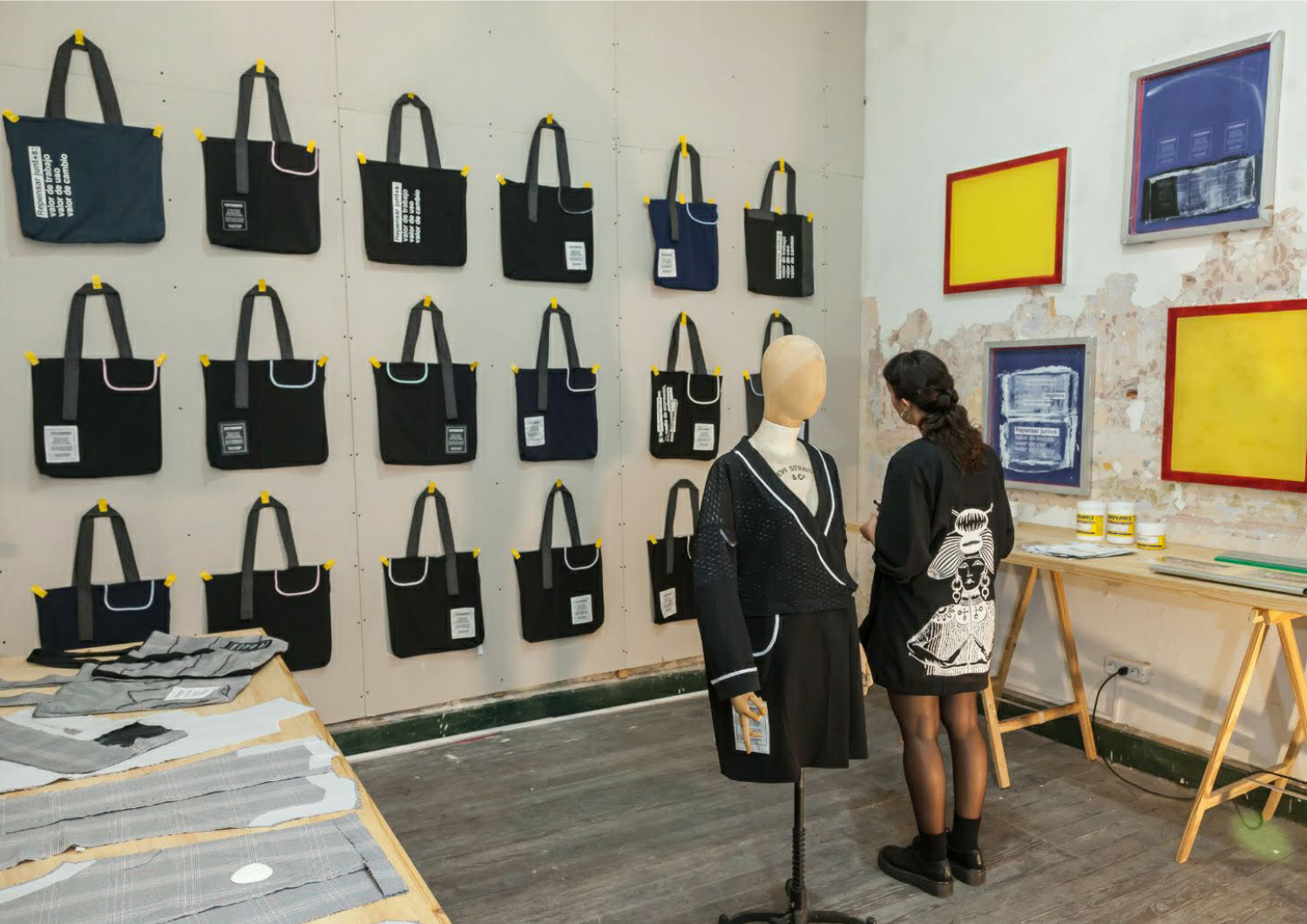
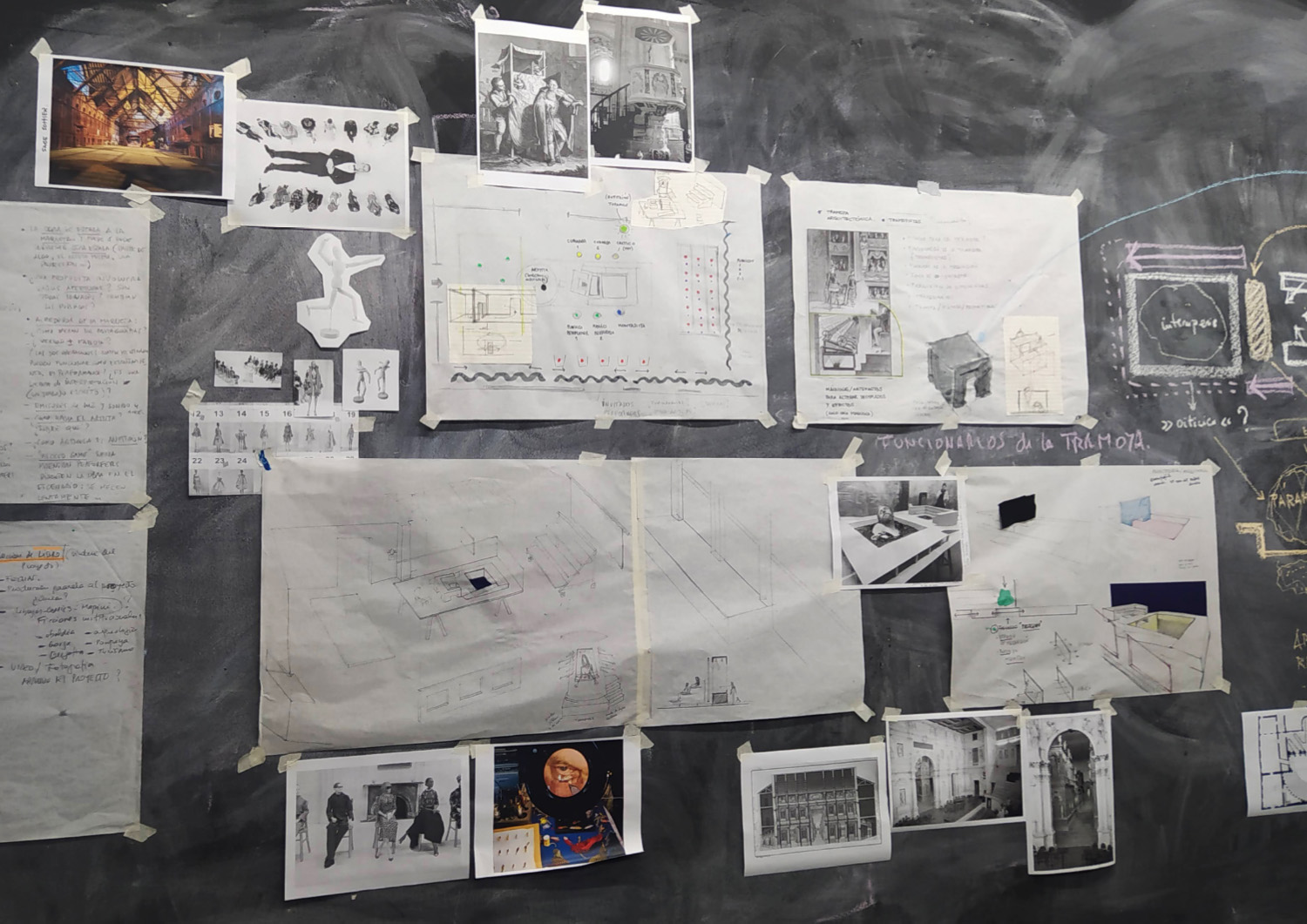
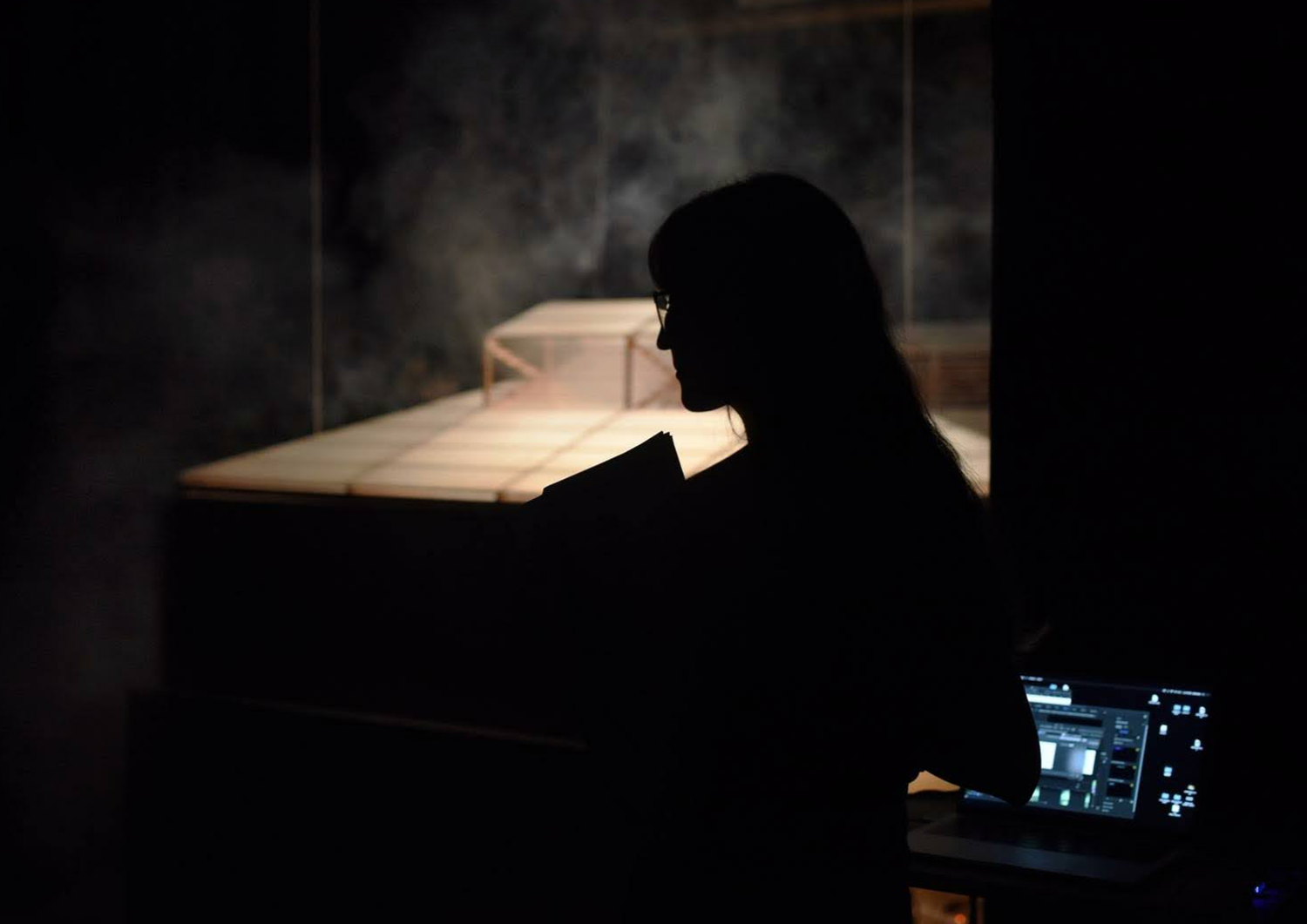

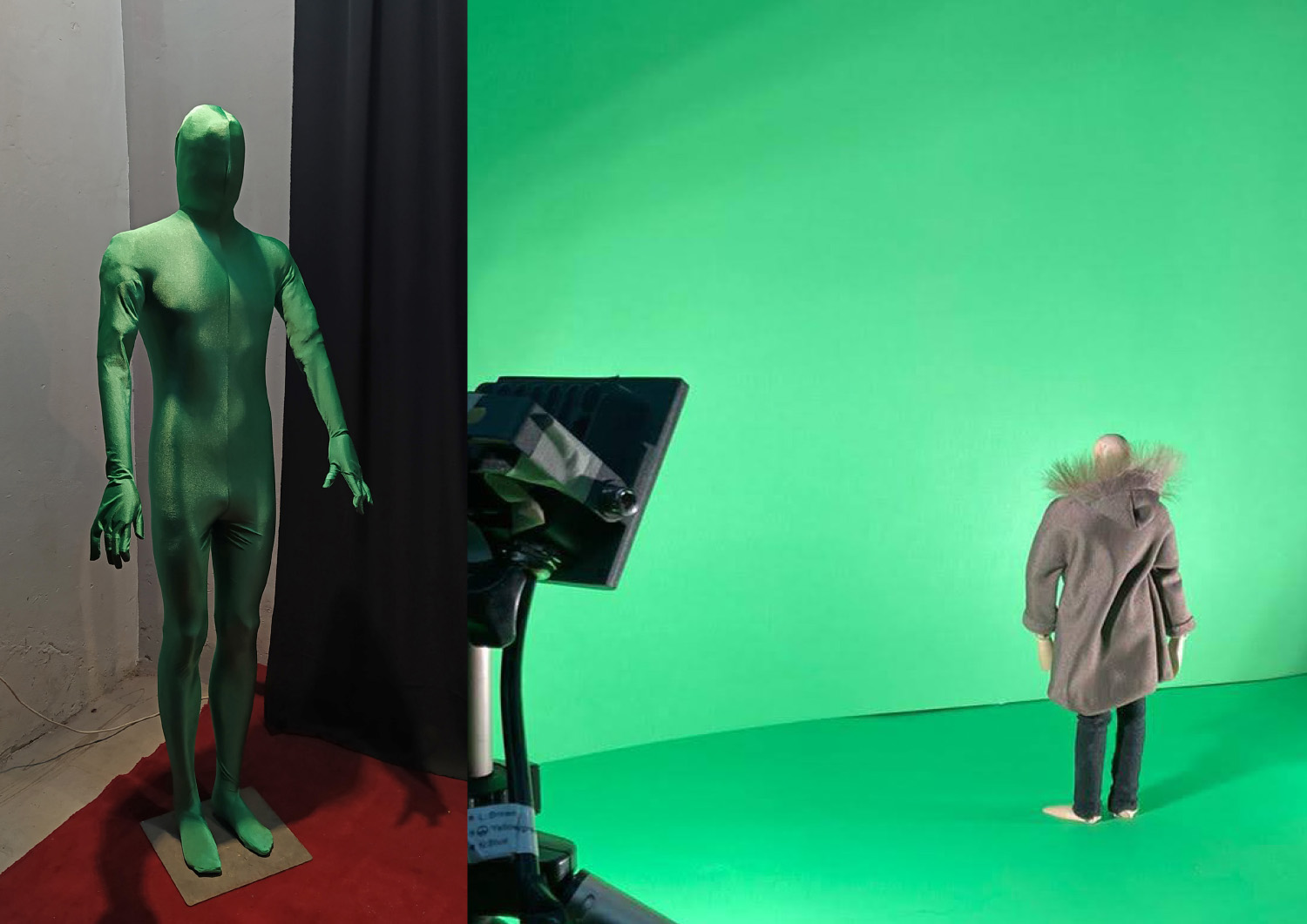
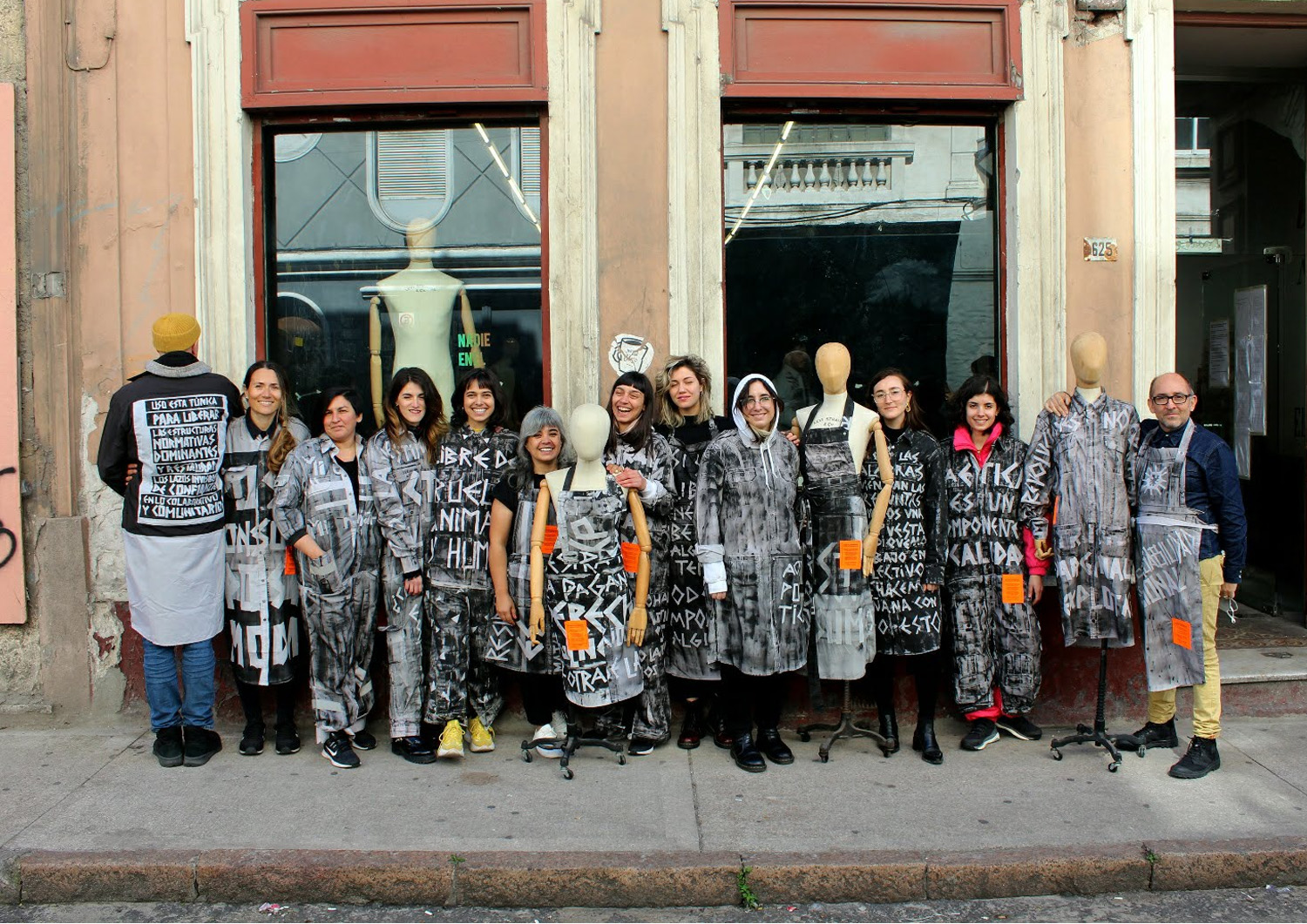
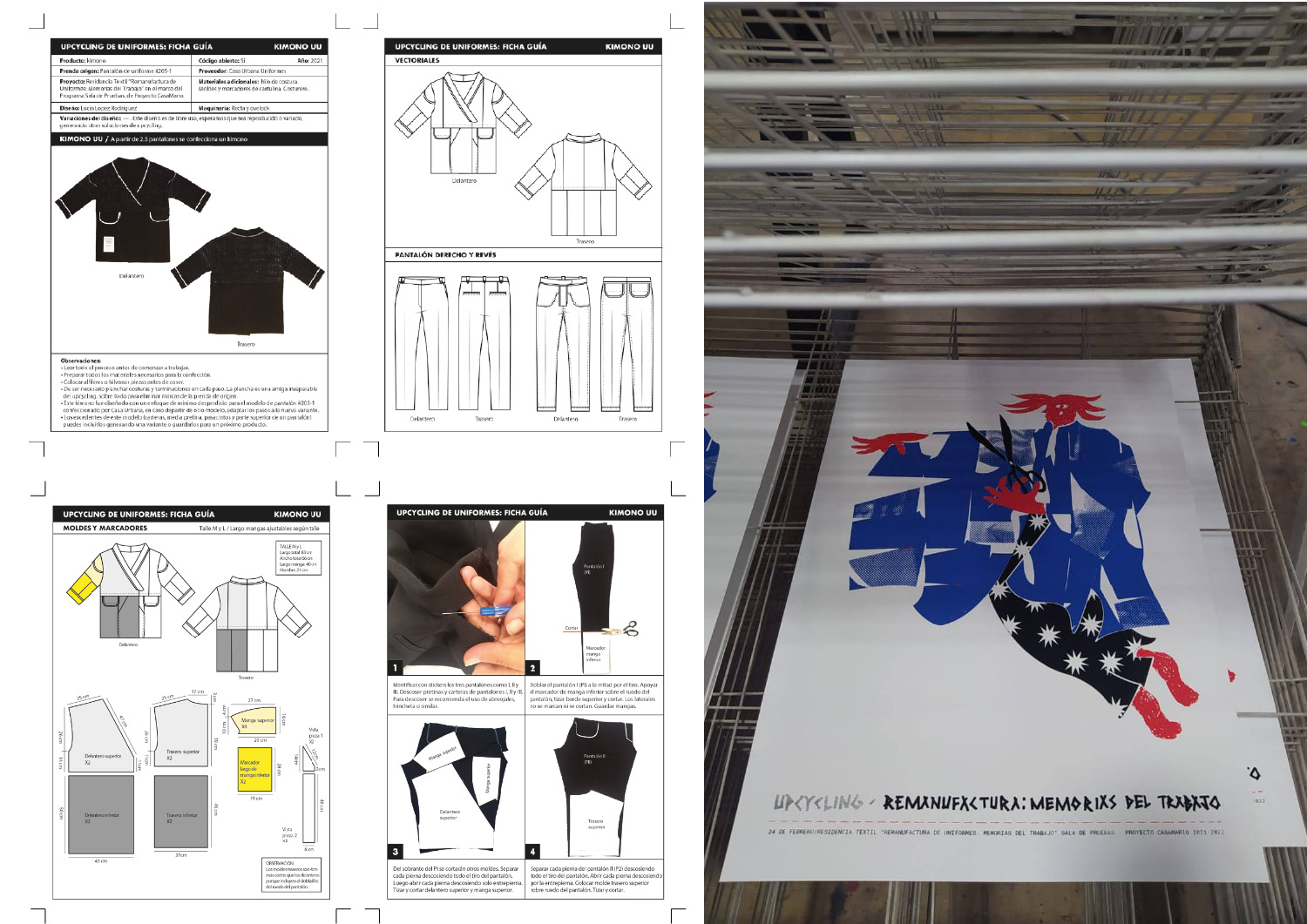
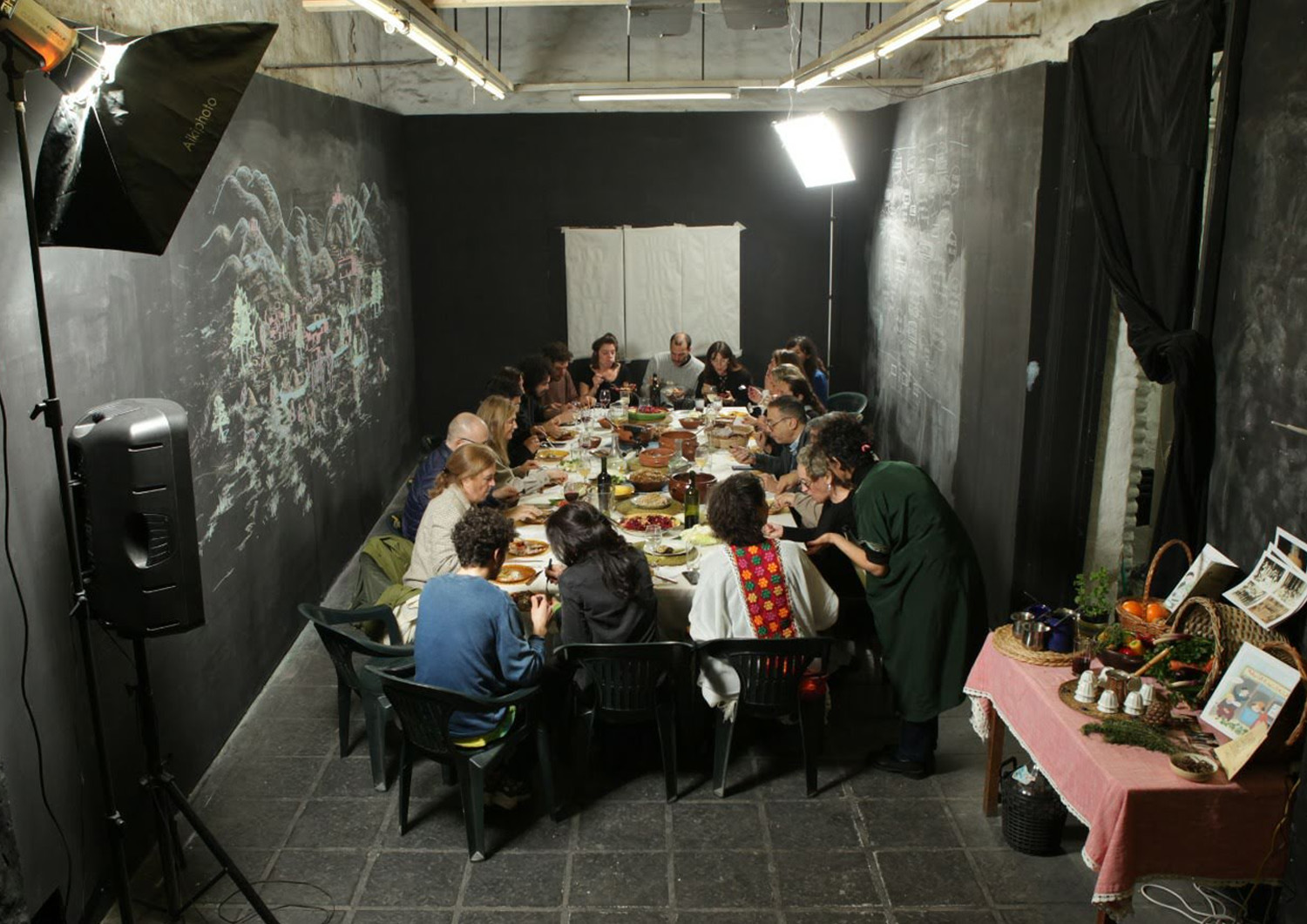

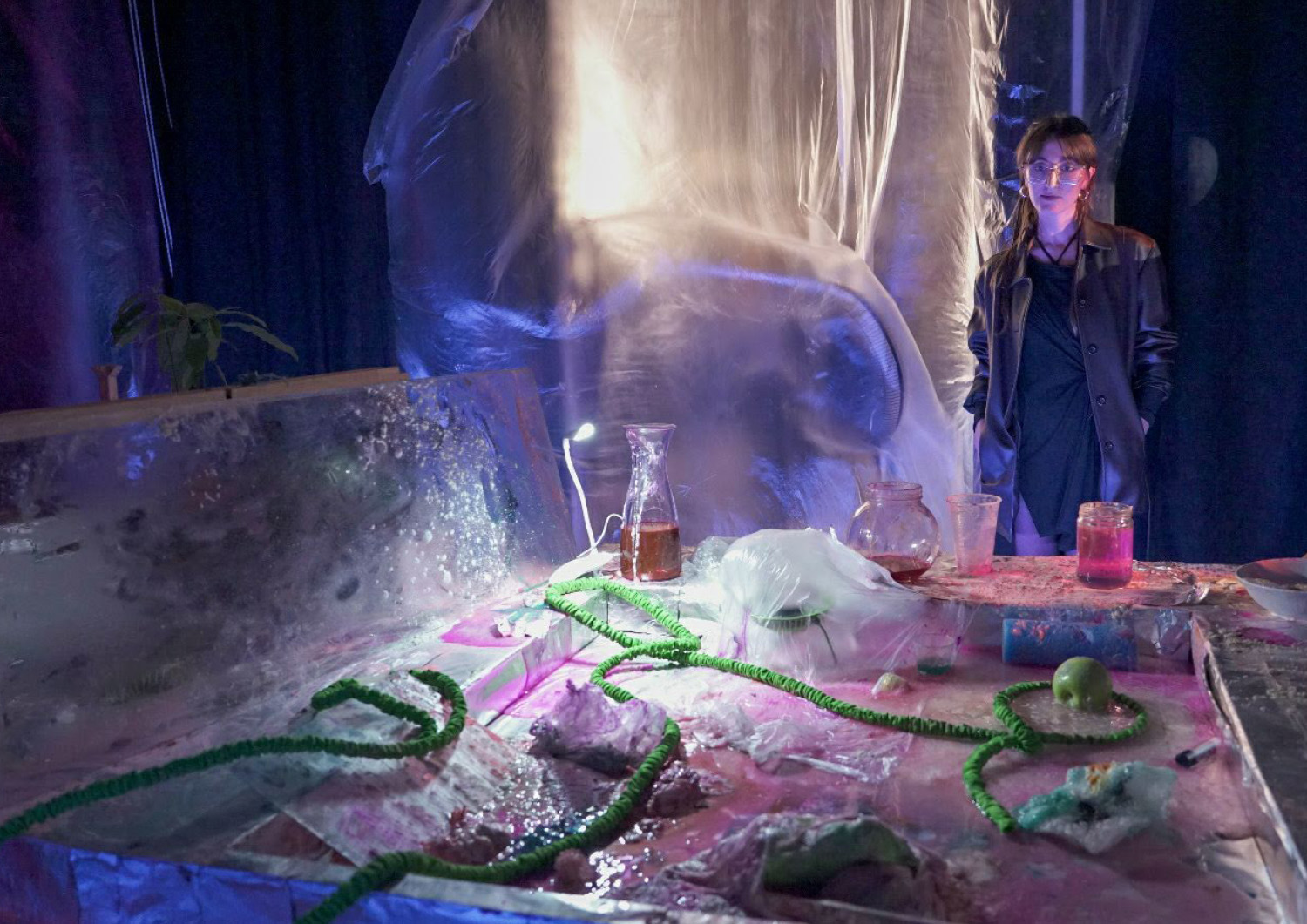
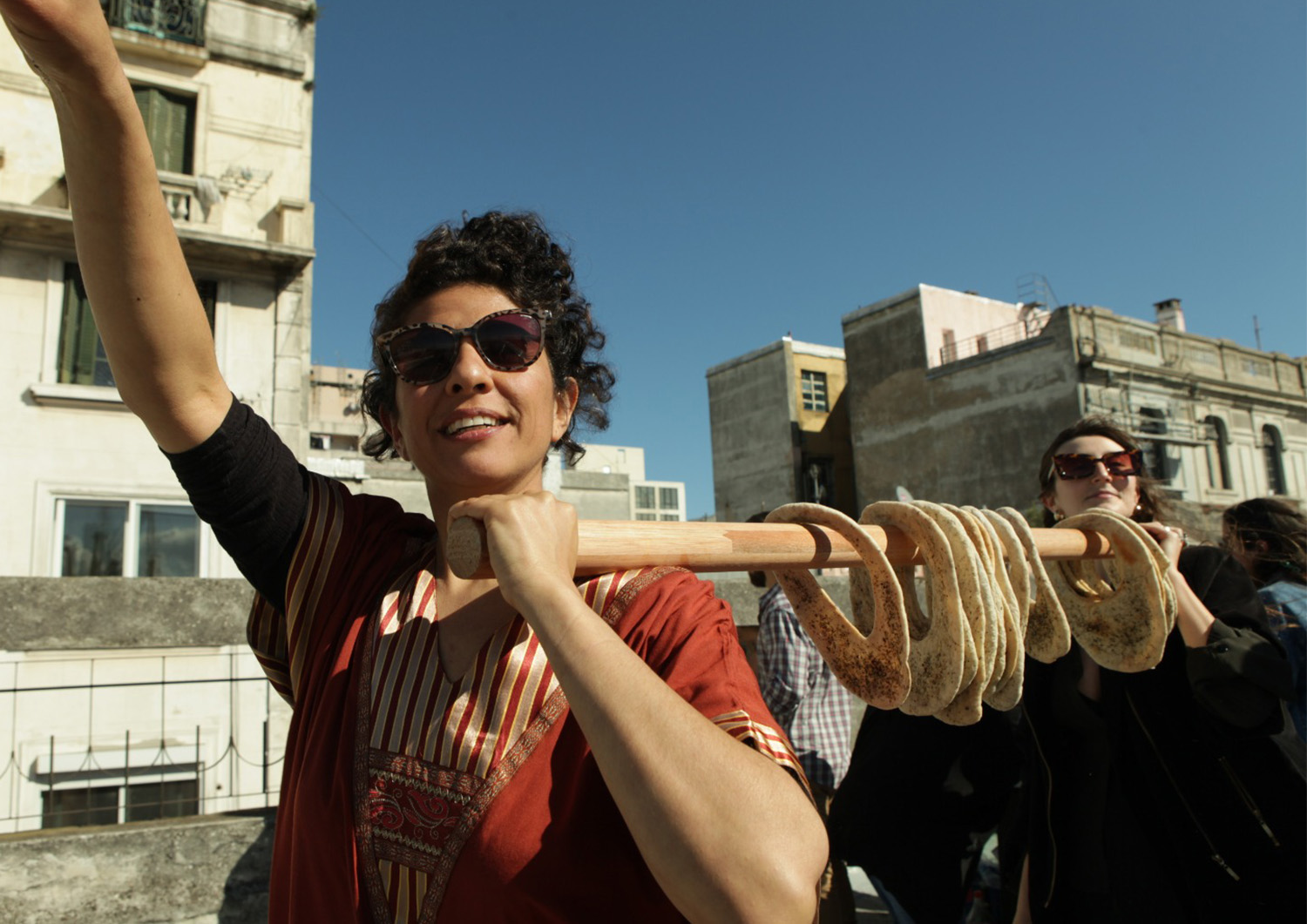
Proyecto CasaMario
Collective, 2019-2023Curatorial team, producer, designer, writer, performer
Proyecto CasaMario is a multi and interdisciplinary autonomous project based in Montevideo, oriented towards sparking reflections around artistic-cultural practices and collective ways of doing, living, and producing.
Through the curation and development of activities such as artist residencies and public exhibitions, textile and graphic workshops, performative streamed activations, and a series of editorial publications, the collective collaborated with multiple local and international artists, and addressed topics related to the notion of home (casa); its connection to architecture, memory, archive and documentation; the public and the private; art and its relationship with the community and the neighborhood it inhabits; gentrification; food as a cultural and artistic medium; the decay of the local textile industry; the environmental crisis; virtuality and artificial intelligence, among others.
My role in the collective was multiple, spanning from curation, exhibition production, performance and costume design for projects like Testing Room 1.10; textile workshop assitance and development of DIY guide sheets for Remanufacturing of uniforms: memories of work, by Lucía López Rodríguez; editorial participation in books like Symposium and Mezze Errante, publications about practices and rituals around food and the table as a meeting space; as well as organization, production, and communication tasks, and supporting resident artists in their practice.
Active members and participants 2019-2023: Sebastián Alonso, Manuel Gallardo, Niklaus Strobel, Ana Gotta, Sofía Dinello Morais, Lucía López R., Rita Fischer, Lourdes Silva, Sandra Sifuentes, Suraia Abud, Marcos Banina, Diego Masi, Federico Lagomarsino, Paola Monzillo, Juan Goyret, Ignacio Lorenzelli, Carlos Laviña, Juan Manuel Ruétalo, Colectivo Hiedra, Pablo Conde, Luciana Damiani, Carla Macabra, Microutopías, Gabriel Peluffo Linari, Anna Larocca, Diego Pereira, Fernando Miranda.
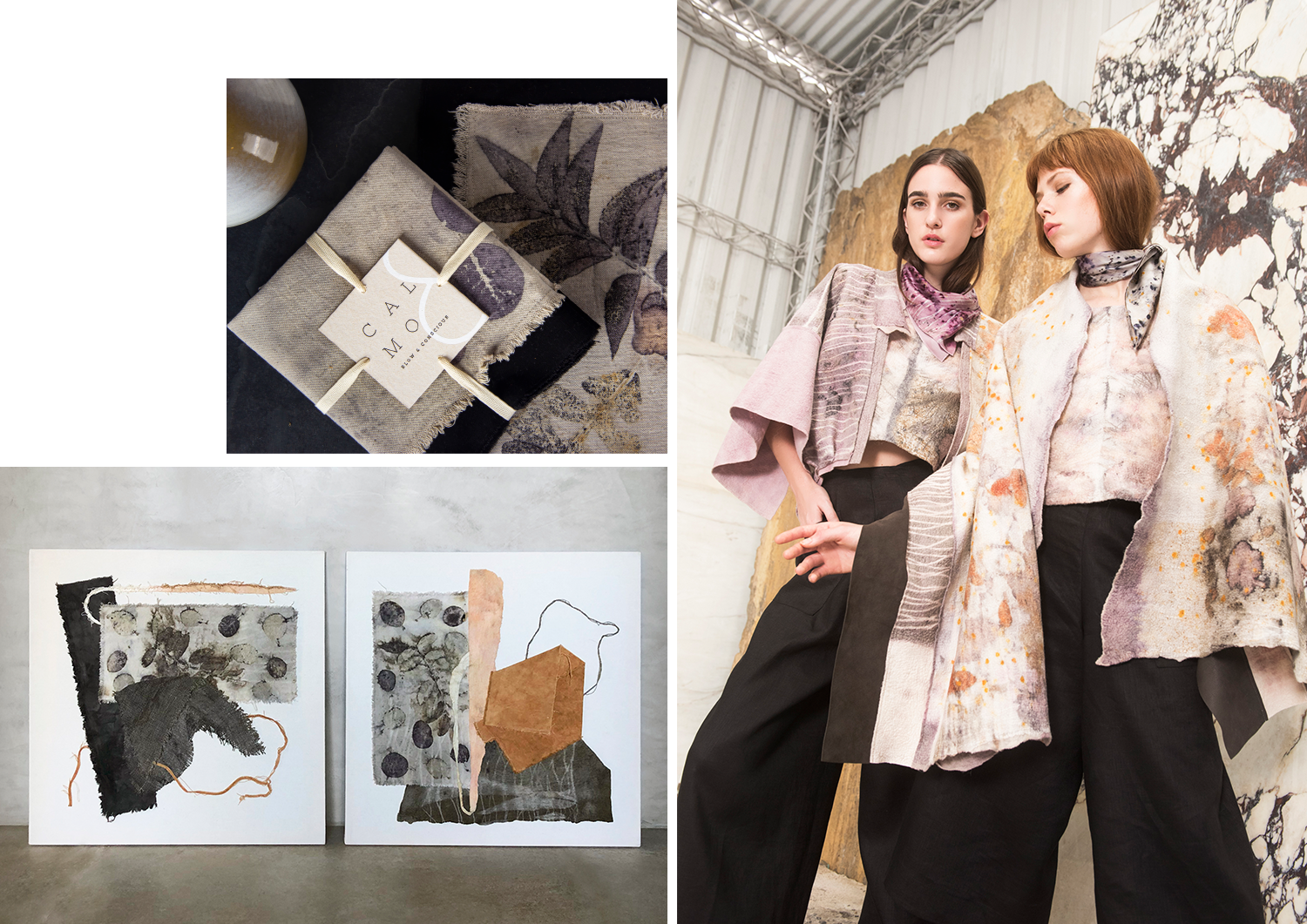
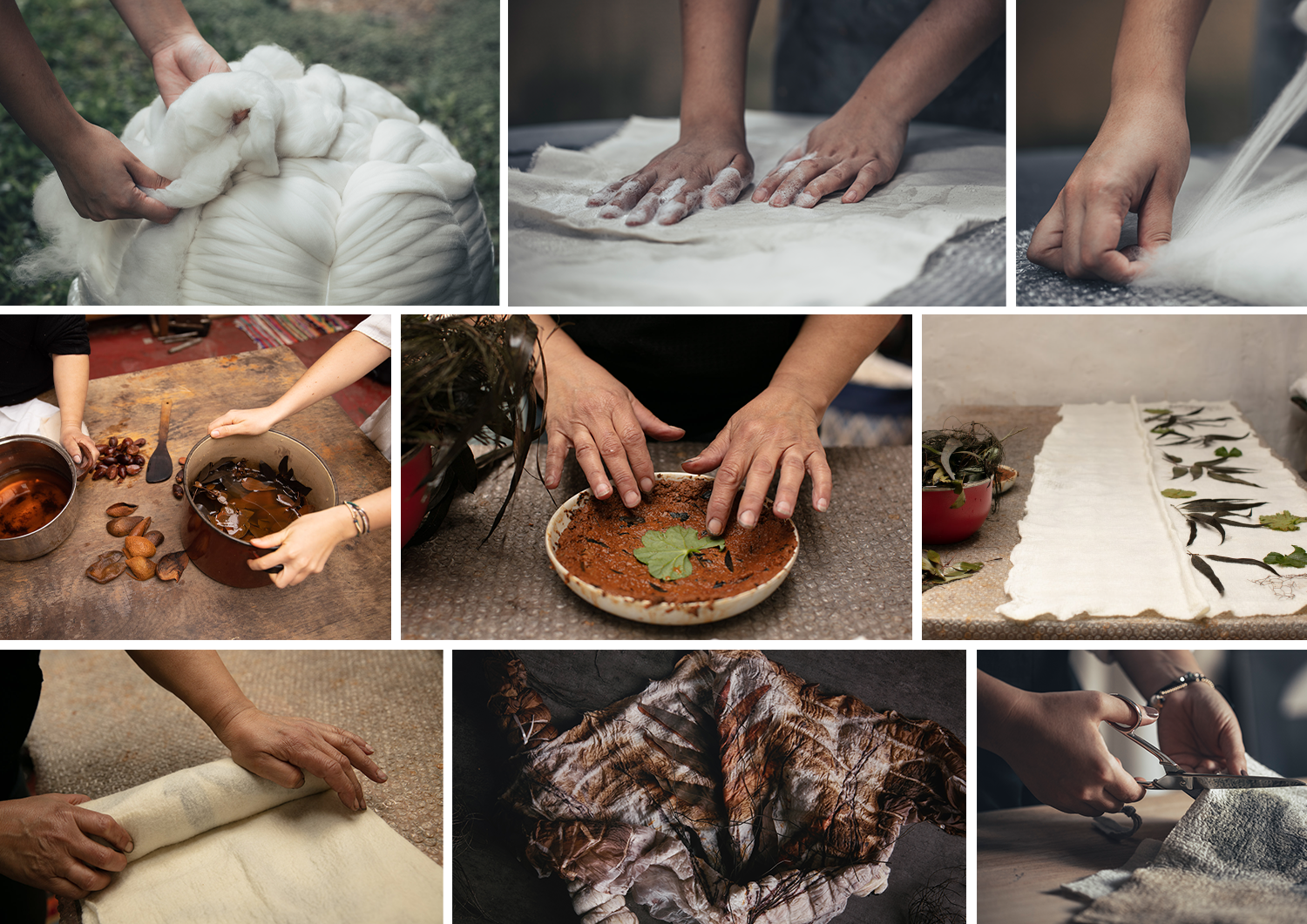
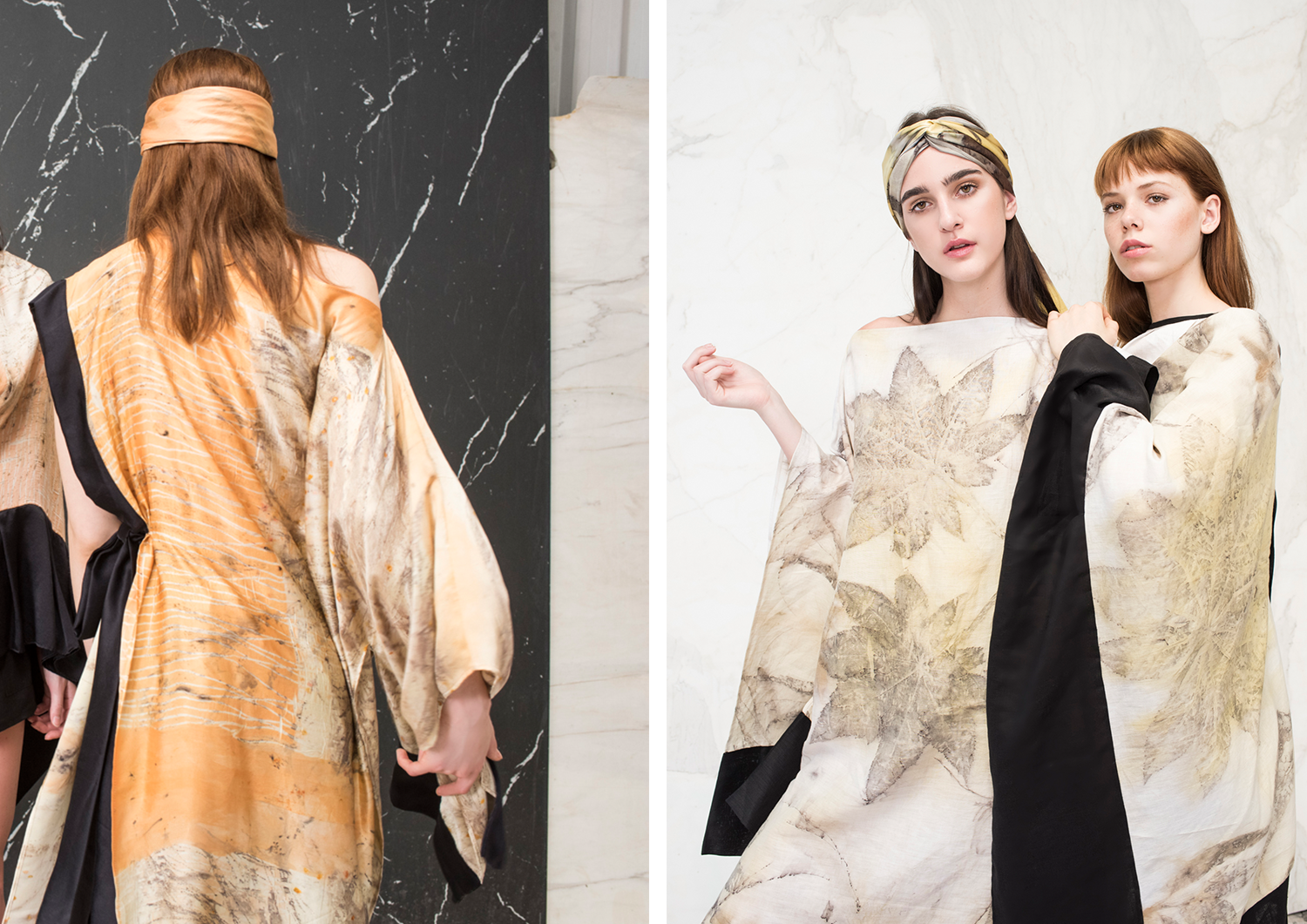
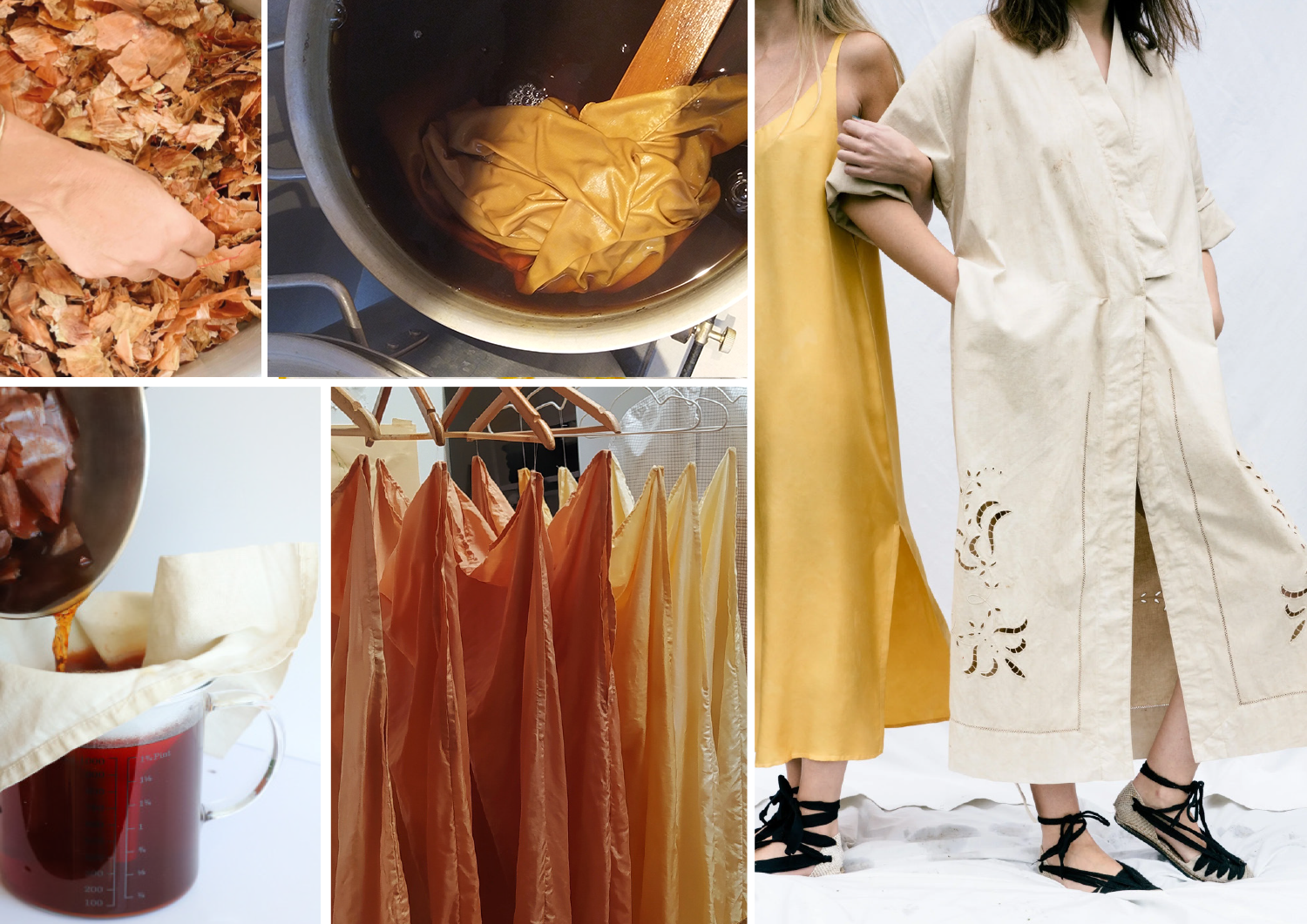
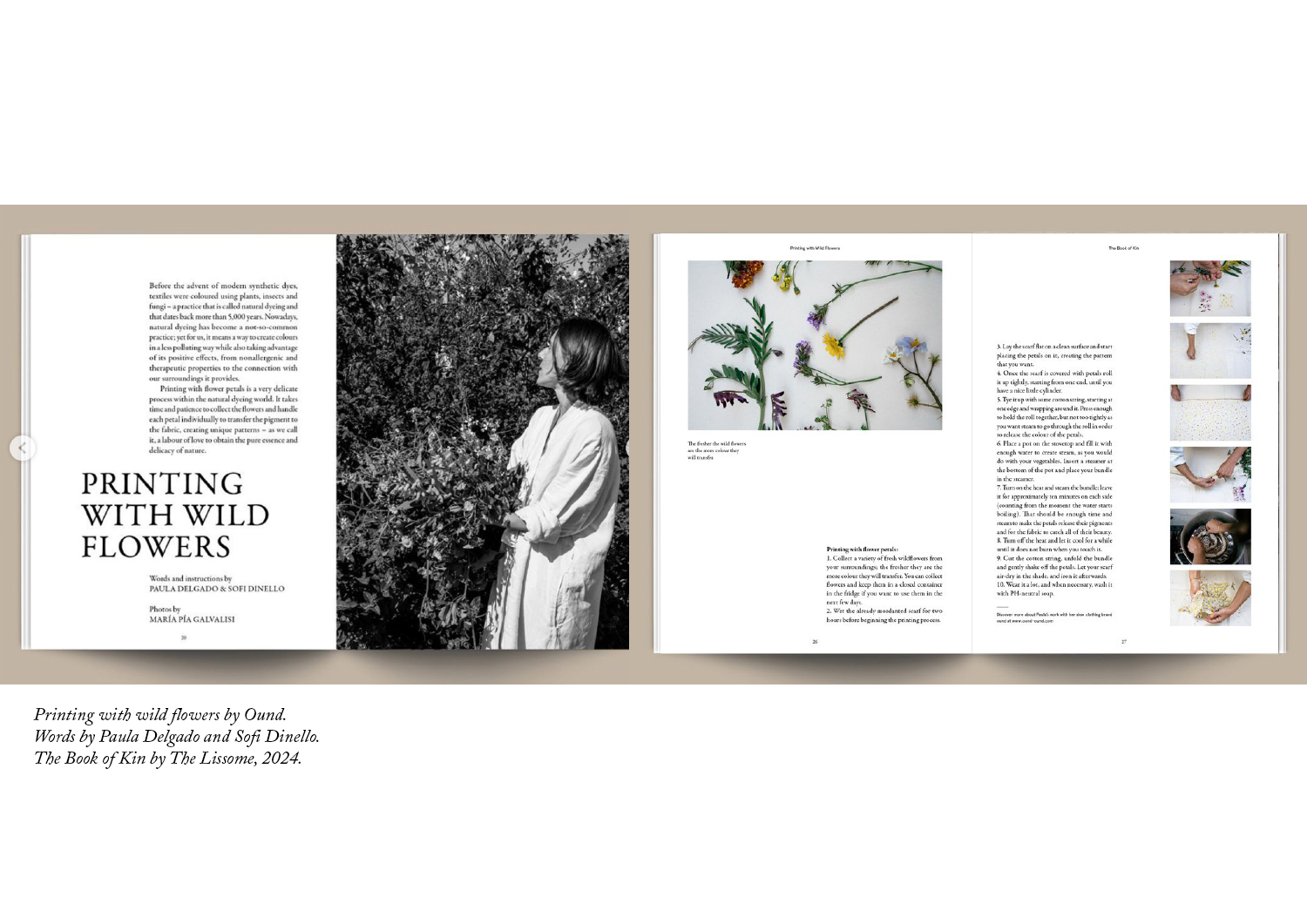
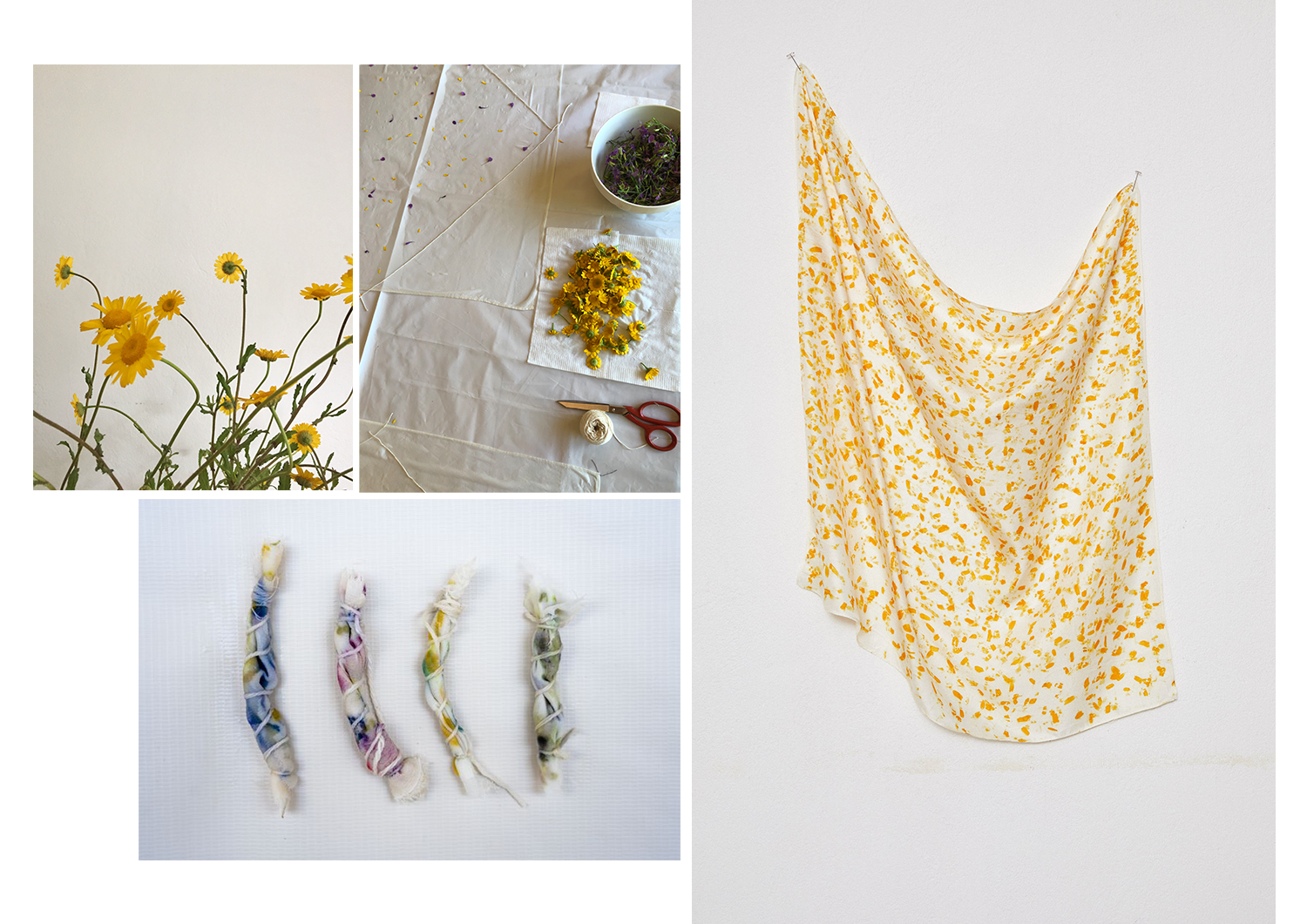
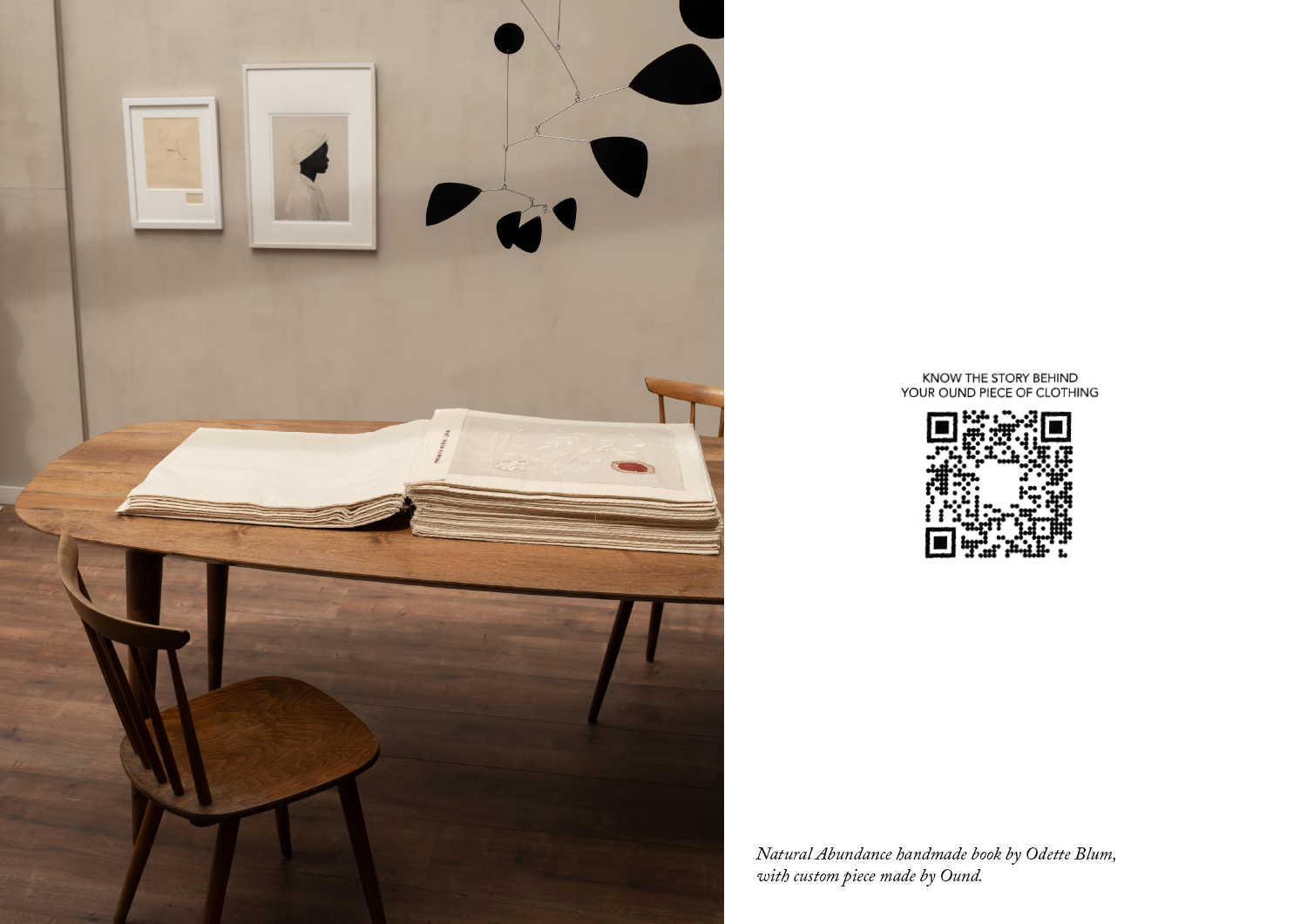

Calmo, Ound
Assistant designer, 2019-2023Textile and natural techniques, crafting developments, storytelling
I’m interested in processes that embodies a philosophy of resourcefulness and craftwomanship. My creative approach is concerned with working not only with what is at hand, but also with the hands themselves, understanding that the handmade resists standardization and reunites material with body. Much of this knowledge and appreciation for the handcrafted was attained during my time working for two projects/brands related to the slow and emotional fashion movement, based in Uruguay: Calmo, and Ound.
Both brands create from an admiration for materials, and specialize in experimenting with natural fibers such as leather, Merino wool, silk, linen, hemp, and cotton, using artisanal techniques. In Ound, hand-knitting and natural dyeing are the essence of the project. The natural dyeing processes are done completely by hand, using food waste and local plants foraged personally. Calmo specialized in products made with techniques like eco-printing and wool felting, to create one-of-a-kind objects while preserving traditional craftsmanship.
During my time there, I had the opportunity to work alongside some of those artisans, learning their craft and ways of approaching materiality. I developed an appreciation for the slow processes that require to be in tune with different temporalities and knowledges, related to the seasons, the weather, and oneself.
I also focused on storytelling. Handcrafting—as well as foraging or re-designing—demands a special kind of attention, humility, and openness to the unpredictable and uncontrollable. These processes translate into a meditative, critical practice. Through the creation of stories of craft and collaboration, we delved into the intricacies of handmade things, combining nature, photography, knitting, jewelry, and hand-printing, between others.
Credits: Calmo Founder and creative director: Alice Otegui. / Ound founder and creative director: Paula Delgado.